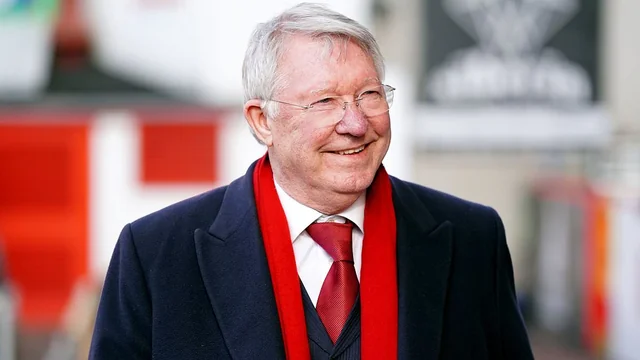Manchester United and INEOS will be everything but an easy relationship and wait there is more to come in the future.
It might have been overlooked in the world of Ineos, but when first-team performance analyst Steve Brown was let go after 23 years at Manchester United earlier this year, his message was clear.
“I wish Manchester United all the best for the future. It’s changed so much in 23 years, some for the better, some not,” he shared in a LinkedIn post. “Don’t lose the soul of the club to save a few quid. The people who were there made it a special place, rich with history.”
That heartfelt sentiment hit home on Tuesday, with the news that Sir Alex Ferguson, the legendary former manager, will no longer receive his £2.1 million ambassadorial contract after this season.
Rio Ferdinand, former United center-back, summed up the shock on X (formerly Twitter): “If Sir Alex can be taken out, then NO ONE IS SAFE at @ManUtd – anyone can get it now.”
Some may argue that it makes sense to cut Ferguson loose, especially with 250 other jobs being cut, many of which were held by people more reliant on their salaries than Ferguson. But others point out how small a figure his earnings are in comparison to the monumental impact he had in turning United into the global powerhouse that Ineos is now profiting from.
Advertisement
Latest Press Conference
We’re on Social Media



The decision reflects Ratcliffe and his team’s laser-focused approach to cutting costs. Last month, United reported losses of £113.2 million for the year ending June 2024, with the figure climbing to £160 million over the past two years. With the help of consultancy firm Interpath Advisory, Ineos has been identifying “non-essential” areas for cuts, aiming to reduce the workforce by 20% and tighten employment benefits.
The various cost-cutting measures, including discontinuing payments to Ferguson after the 2024-25 season, are expected to save the club between £40 million and £45 million.
Ferguson, who attended United’s recent match at Villa Park alongside Ratcliffe and his team, is reportedly saddened by the departure of many long-time colleagues and friends as part of this restructuring.
Brown, who was hired by Ferguson in 2001, is just one of many notable departures as Ineos shakes things up across the club. Even before Ratcliffe’s 25% stake in the club was confirmed, CEO Richard Arnold had announced his immediate departure after 16 years, with Patrick Stewart taking over on an interim basis before his own departure. Omar Berrada was later appointed CEO, while the former Ineos Sport CFO Roger Bell replaced outgoing CFO Cliff Baty.
The reshuffle hasn’t stopped at the boardroom, either. Long-time physios Richard Merron and John Davin were let go, along with deputy football director Andy O’Boyle. On the coaching side, Steve McClaren, Mitchell van der Gaag, Benni McCarthy, Richard Hartis, and Eric Ramsay have all left, with Erik ten Hag bringing in new coaches. In the academy, Neil Harris, who spent 21 years nurturing young talent, was also caught up in the wave of redundancies.
While many of these changes, especially at the executive level, have been met with little resistance due to United’s recent struggles on the pitch, the end of Ferguson’s ambassadorial contract has highlighted the severity of Ineos and Ratcliffe’s cost-cutting measures.
Steve Brown’s warning still echoes: “Don’t lose the soul of the club to save a few quid.” In the current climate, it seems that no one and nothing is untouchable as the club tightens its purse strings.
